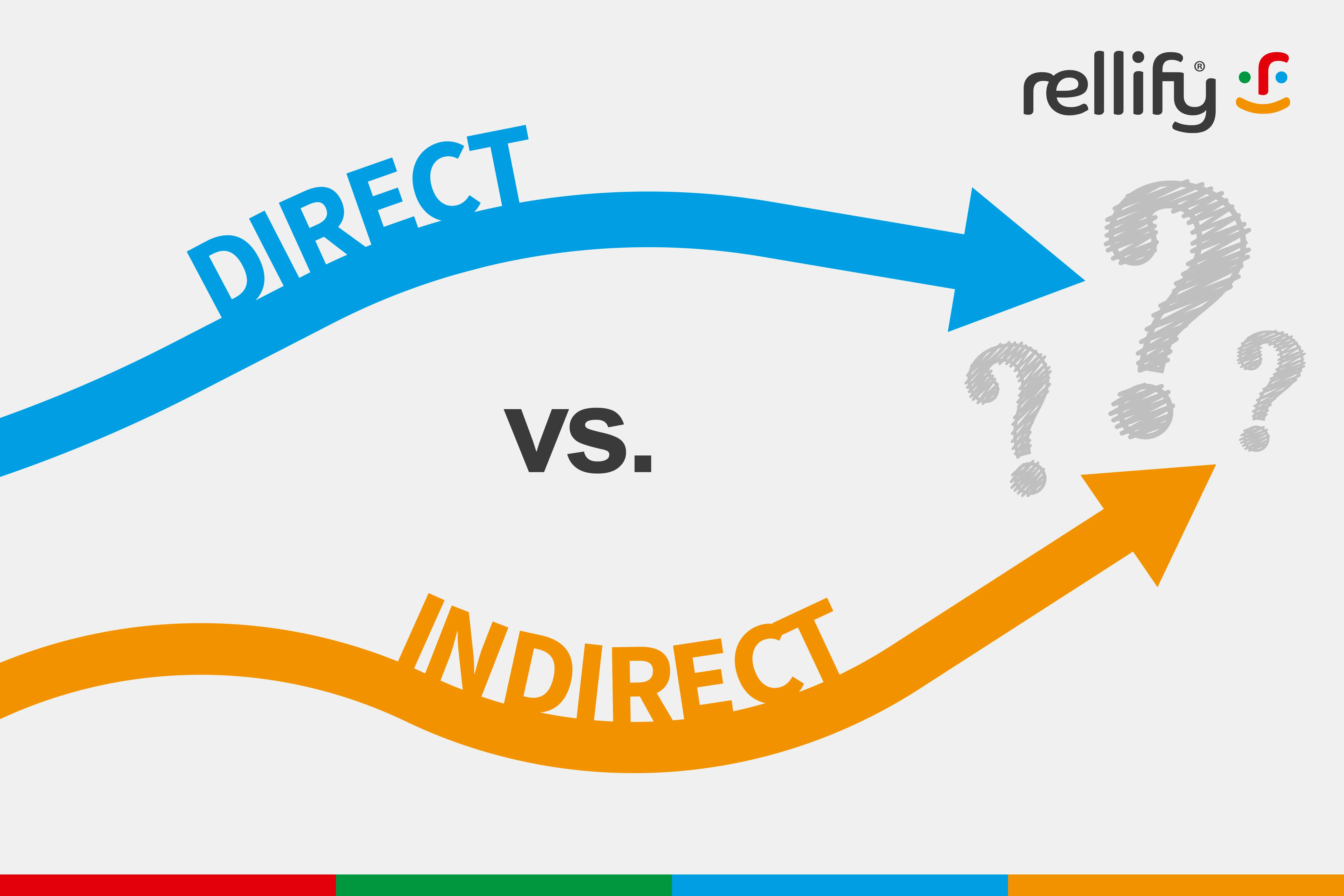Indirect vs. Direct Content Competition: What's the Difference?
Last Updated on
May 31, 2024
Published:
March 22, 2024

By Nora Firestone - If you're looking to bolster your return on investment from content marketing, you're going to have to start at the beginning of the process: Sizing up your competition. But not all content competition is created equal. In this article, we'll take a look at the distinctions between indirect and direct competition, so you'll be prepared to take advantage of both.
What is content competition?
The digital marketplace is a competitive landscape where brands and businesses create and distribute content. And that content competition is intense. Blogs, videos, social media posts, white papers, podcasts — all these forms of content and more battle for the attention of potential customers. Anything you put online to promote your business is considered "content competition" by your rivals. It all competes to win time with target audiences.
Let's take a look at how to classify different types of content competition so you can best develop a killer SEO and content strategy for your next round of target marketing.
Direct content competition
Direct competitors are those businesses or brands that offer similar products or services to the same target audience. In the context of content marketing competition, it applies to content that targets the same audience with similar strategies, topics, keywords, themes, or solutions.
Examples of direct competition in content marketing could include two fitness brands producing content about workout routines or two minimalist fashion brands putting out style guides.
Indirect content competition
Indirect competitors are those businesses or brands that offer different products or services but still compete for the attention and resources of the same target audience.
Indirect competitors produce content that doesn't directly overlap with another brand's offerings. They may, however, address related topics, interests, or pain points of the audience, even though their products or services are not identical.
Examples of indirect competition in content marketing could include a fitness brand competing indirectly with a nutritional supplement company or a sustainable raincoat brand competing with an eco-conscious shoe company.
How content competition can inform your marketing strategy
Competitors play a significant role in shaping content marketing strategies through both direct and indirect means. Directly, competitors' content can serve as benchmarks for structure, quality, tone, and messaging. It can inspire marketers to innovate and differentiate their own content offerings. Observing indirect competitors' successes and failures provides valuable insights into audience preferences, trends, and gaps in the market. These lessons can be used to shape your content creation and distribution decisions.
By continuously monitoring and analyzing competitors' content strategies, marketers can refine their approach to stay relevant and competitive.
Identifying and analyzing your competitors
While the rivalry might be fierce, it helps to look at your content and product competition as a learning tool to help guide your own branding and marketing efforts.
By identifying competitors' strengths, you can gain insights into what resonates with your shared audience and leverage those insights to improve your own content. Similarly, recognizing weaknesses in competitors' content allows you to capitalize on opportunities to fill gaps in the market and offer unique value propositions, ultimately helping you to differentiate your brand and drive better engagement and conversion rates.
Tools for competitor analysis
Rellify is a groundbreaking tool for content marketing. One of things we can do for a client is build a Relliverse™: a company-specific AI subject-matter expert for all topics that move your company. Other content marketers use AI tools that scan the entire internet to produce generic content. We use industry-leading Deep Machine Learning to crawl the URLs of your company and your competitors. With that better-focused, custom Relliverse™ built specifically around your company's niche, you'll be able to find out exactly what kind of content competition you're up against and precisely what you need to write about in order to get a higher ranking on search engines.
Unlock your domain expertise with Relliverse™
- Discover essential topics. Uncover the subjects you need to explore to establish yourself — not your competitors — as the authority in your field.
- Spot content opportunities. Identify gaps in your competitors' content, as well as your own, that present opportunities to win the battle for search engine results.
- Strategize with precision. Prioritize your content creation efforts based on the competitive landscape and the relevance of topics.
- Effortless content planning. Craft a comprehensive content strategy in moments, not months.
How Relliverse elevates your strategy.
- Comprehensive web harvesting. We scour the internet, collecting a vast array of web pages and documents related to your chosen topic.
- Advanced analysis. Using cutting-edge Natural Language Processing (NLP) and Deep Machine Learning, we distill this information into coherent clusters of main topics and subtopics.
- Competitive intelligence gathering. We compile data on your and your competitors' website traffic, keyword usage, and search rankings.
- Integrated insights dashboard. By merging these insights, the Relliverse dashboard serves as your go-to resource for identifying prime topics for content development, ensuring your position as a domain leader while highlighting your current topic coverage and benchmarking against competitors.
Google Analytics is another analytics software tool that can provide additional insights about your traffic, including audience demographics, traffic sources (where your visitors are coming from), and content performance. By monitoring your own demographics, you'll be able to make comparisons to how well that matches up with the demographics of your content competitors. The Rellify Platform integrates with Google Search Console as part of our monitoring service, making it easy to track how your content is performing.
These tools will help you to stay attuned to competitors' tactics and strategies. By consistently striving to produce high-quality and engaging content that stays fiercely competitive, you can attract and retain the right audience and improve profitability.
Use Rellify to boost your content performance
In this competitive market, Rellify knows just how important it is to use insights from both direct and indirect content competition to build an airtight marketing strategy. The state-of-the-art Relliverse™ enables you to see your competitors like never before. And the Rellify Platform helps you produce targeted content with efficiency and speed. We enable you to combine sophisticated AI tools with the human expertise of writing and editing to create content that can soar to the top of search engine results pages.
Want to find out more about how Rellify can use content competition to boost your own content? Contact an expert today!




